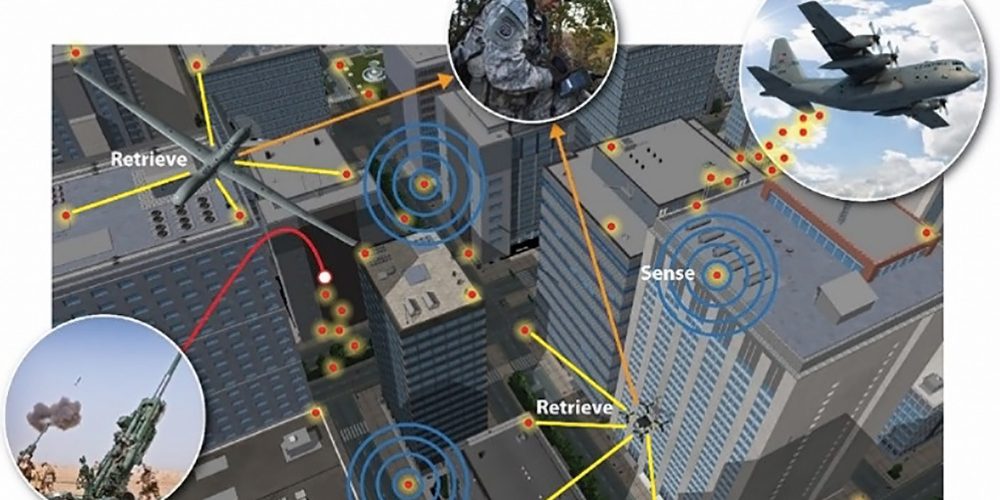The U.S. Army is now accepting concept white paper submissions for its newest prize competition, the xTech Rapid Capabilities and Critical Technologies Office (RCCTO) Army Strategic Rapid Acquisition (AStRA) competition, with the opportunity to earn prize money and potential to submit for a follow-on contract or Other Transaction Authority (OTA) agreement with a total budget of $25M.
The xTechRCCTO AStRA, sponsored by RCCTO in collaboration with the Assistant Secretary of the Army, Acquisition, Logistics, and Technology (ASA(ALT)), the Program Executive Office for Intelligence Electronic Warfare & Sensors (PEO IEW&S), and PEO Soldier, aims to incentivize businesses and academic institutions to propose innovative, viable technology concepts to the Army to accelerate military technology and fill critical technology and operational gaps that fit within Tactical Edge Devices.
Problem Statement: The Army is interested in leveraging commercial satellite sensors (electro-optical, radio frequency, thermal, etc.) in order to reduce the sensor-to-shooter timeframe and enhance the Warfighters’ ability to identify and assess objects of interest. This capability will be utilized in tactical, forward-deployed environments as a component of large-scale combat operations in the Tactical Intelligence Targeting Access Node (TITAN) system. As such, it must be lightweight, easily maneuverable, and quickly concealable (e.g., in a Manpack form factor). This solution will utilize the most efficient and effective methods for assessing, compiling, and presenting data as actionable information. This will be accomplished by employing both traditional computing and display techniques augmented by artificial intelligence, machine learning, and/or machine vision paired with enhanced visualizations such as 3-D, augmented reality (AR), or virtual reality (VR), as appropriate. As part of this effort, the Army is also interested in Federated Learning (FL). Currently, the Army utilizes centralized machine learning (ML) approaches to train models which require significant upfront investments in data annotation and model training that are often time-consuming and expensive. These centralized approaches involve data pipelines that use central servers that host trained models to make predictions. The downside of these approaches is that all the data collected by edge devices/sensors is sent back to the central server for retraining and subsequently returned back to edge devices. This round-trip limits a model’s ability to learn in real-time and increases latency, cost, and engineering complexity when applied in Delayed/Disconnected, Intermittently-Connected, Low-Bandwidth (DIL) environments. In contrast, FL is an approach that updates models at the edge device itself using local data. These locally trained models are then sent from edge devices back to the central server where they are aggregated before a consolidated and improved “global” model is sent back to the edge devices. Using FL, all data are kept in local storage on edge devices, and only model weights are exchanged between edge devices and the central server – enabling models to learn in real-time. This decentralized ML approach significantly reduces latency, network/bandwidth requirements, and retraining costs. Additionally, since data are kept on local devices, this approach simplifies and reduces data security/privacy risks common across edge systems.
The challenge competition consists of four (4) phases that participants can progress through, which include the following:
- Part 1: Concept White Paper – Eligible entities will submit a 5-page technical white paper outlining their technology solution, with an optional 3-4 minute video.
- Part 2: Technology Pitches – Winners from Part 1 will have an opportunity to conduct an oral proposal/technology pitch between June 29 and 30, 2021. Participants will be awarded $5,000 when they complete their presentations.
- Part 3: Request for Project Proposal – Winners selected from Part 2 will be provided with an opportunity to submit a Request for Project Proposal (RFPP) for a potential contract/OTA.
- Part 4: Basis for Award – Upon qualitative and quantitative evaluation of all phases and all submissions, the United States Government (USG) may choose to make an award or multiple awards.
Concept White Paper submissions must be received by 5:00 p.m. EST on May 25, 2021. If you are interested in participating in the xTechRCCTO AStRA competition and want to learn more about the topics, please visit the Army xTech website at www.xtechsearch.army.mil for further details and share with your colleagues.


